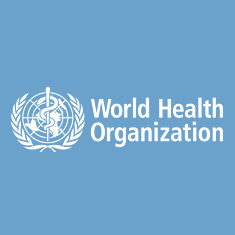WHO provides insights into global medical technology needs
by
Barbara Kram, Editor | August 25, 2010

WHO outlines global
medical technology needs
What are the world's most important and promising health technologies? To answer the question, look no further than the World Health Organization's call for innovative technologies to address global health concerns.
In 2007, WHO, working with the government of the Netherlands, launched the "Priority Medical Devices" project to determine whether medical devices currently on the market meet the needs of health care providers and patients around the world. The organizations identified remedies for shortfalls such as gaps in the availability of preventive, diagnostic, therapeutic and assistive medical devices. WHO is coming out with its report next month. And the First Global Forum on Medical Devices will held September 9-11, 2010 in Bangkok, Thailand.
Meanwhile, online (see URL below) you'll find WHO's list of technologies needed to address global health issues. These are organized into two types: Category 1 (commercializable) includes newer products that are not yet widely used in low- and middle-income countries. Examples include fluorescence visualization systems for cancer screening, and LED phototherapy units, among others. Category 2 includes products in the non-commercialized stage. Examples include simplified anesthesia units and solar-powered autoclaves, among others.
Companies offering these solutions have the opportunity for market growth as well as helping world health with their business plans.
Irvine, Calif.-based Masimo was pleased to find its category of transcutaneous anemia monitoring systems among WHO's priorities. Anemia affects 1.6 billion people worldwide, causes one million deaths a year, and is a top-ten risk factor contributing to the global burden of disease, according to WHO.
"Having our noninvasive hemoglobin technology prized by the World Health Organization as one of the 15 medical technologies representing accessible and affordable solutions to meet global health concerns and needs is significant," said Masimo CEO Joe Kiani. Their palm-sized Pronto-7 enables quick and easy noninvasive hemoglobin measurements without the need for a blood sample so it can be used anywhere. "But particularly for international medical use where time, resources, medical supplies, and processing labs are all too often scarce," he noted.
WHO's list of selected innovative technologies needed to address worldwide health crises is available here:
http://www.who.int/medical_devices/call_selected_innovative_tech/en/index.html
